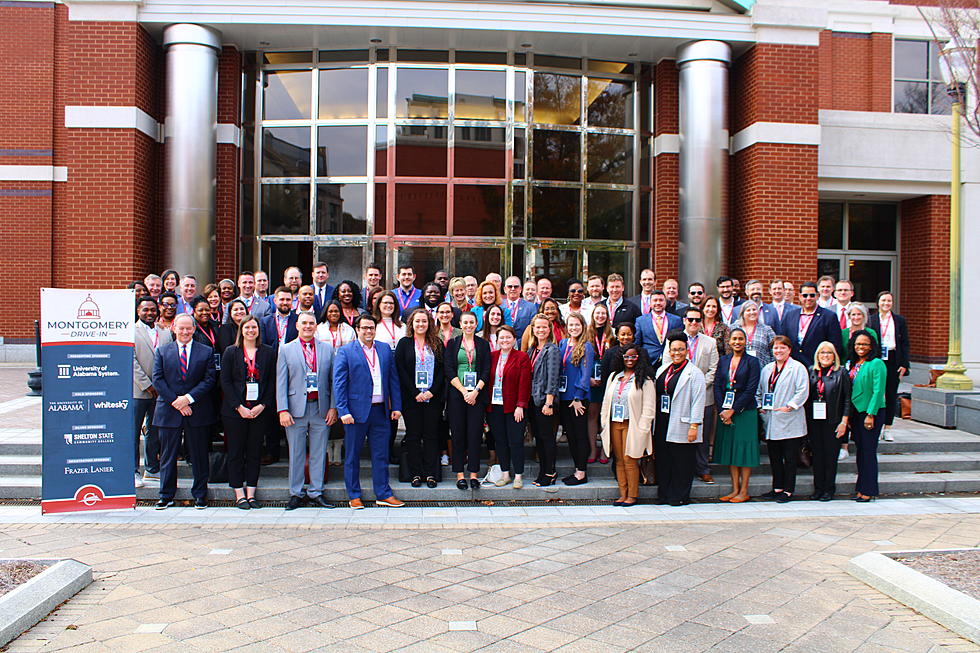
Union Voting Underway at Mercedes
The weeks long buildup has given way to week-long voting on a union at the Tuscaloosa County Mercedes Benz Plant that began today.
The story lines are many leading to this week's secret ballot vote of the near 6,000 employees. It all began with the election of 29-year veteran union electrician Shawn Fain by just 477 votes to the United Auto Workers presidency. He assumed power in March 2023 with a goal of expanding union power.
Fain Assumes UAW Power and Becomes Aggressive
A few days after taking over, Fain sent a message to the automakers, that the UAW was "fed up with the status quo." When negotiations broke down, he took the union workers out on a six-week strike. He played hardball with the companies and won significant concessions, including a record 25% pay hike and a return to cost-of-living salary adjustment among other agreements.
He has lived up to that warning with uncompromising tactics. He pushed the union to become more aggressive by using social media, the internet and providing tools for employees to organize. Fain also poured $43 million into his southern invasion.
Some non-union workers at Mercedes and other southern non-union auto plants noticed and began talking about unionizing at plants that had voted down previous efforts. Their response played right into Fain's battle plan.
Once the Detroit strike concluded Fain turned his attention southward, bent on conquering the heretofore anti-union south. A region that had drawn huge and successful foreign auto plants by promising tax incentives, lower wages and a nonunion workforce.
The Battle Line is Drawn in Alabama
Fain's first target was Volkswagen in Chattanooga TN which fell to the union in its first big southern skirmish under Fain several weeks ago. He then turned to Mercedes with confidence that the German owned company would be the next to fall in the UAW invasion of the south. as some very vocal pro-inion employee stepped forward to lead the union charge.
These employees voiced anger that Mercedes was no longer the employee friendly company it used to be and based their pro-union stance on concerns about lower pay, slower promotions, longer working hours and benefits not keeping up with inflation. All that translated into 70% of the Mercedes employees signing cards demanding a union vote.
Not unexpectedly Mercedes, its suppliers and Alabama government officials have not sat passively by, they responded in opposition. The company mounted an informational campaign emphasizing the negatives of becoming a union shop. This led to the not unexpected charges to the National Labor Relations Board by the UAW that Mercedes was conducting a strike busting campaign.
Gov. Ivey and the six other Republican southern governors with non-union auto plants issued anti-union messages and expressed concerns that going union could break the strong economies of each state and even lead to plant cutbacks or closures.
However, a "White Paper" study by The Center for Automotive Research recently discounted the fear of closure, "As the sole producer of unibody large luxury SUVs for Mercedes-Benz for nearly two decades, Mercedes-Benz Plant Tuscaloosa has established a well-functioning supply chain network in the region, and its products are sold not only in North America but also exported worldwide. Given this vantage position, any plant closure or relocation options for this plant seem remote given current circumstances and market conditions."
The Alabama Legislature quickly passed a law, signed by Ivey, that would remove government economic assistance from companies that recognize unions without a secret ballot vote.
Then last week, Mercedes Benz USI appointed Frederico Kochlowski to head U.S. operations. A move applauded by anti-union workers and viewed as a ploy by those who are pro-union.
Alabama is a Hard Nut to Crack but is Not Totally Antiunion
Columbia Law School Professor Kate Andrias told Reuters News Service that Alabama is a harder nut to crack than other southern states, "The challenge is very significant at the Mercedes plant and in states like Alabama...where there really has been so little union activity."
Union members accounted for 7.4 percent of wage and salary workers in Alabama as of 2023 statistics from the Alabama Department of Labor. That is compared to nationwide where union members accounted for 10.0 percent of employed wage and salary workers in 2023.
Alabama's union numbers are low compared to the nation but are 2.4$ higher than any other southern state.
Backers from other union believe this may be the best chance yet to grow unions across the state and south.
Yet some union experts believe UAW could be a bit overconfident in predicting a large victory when the votes are counted Friday. They point out that signing a union card demanding a vote does not always result in positive union outcome.
These same experts also emphasize that if the UAW does win the vote the next phase, negotiating a contract, could be long and hard fought and that southern auto plants may not crumble under a union strike like the Detroit automakers.
Alabama is a Right-to-Work State
Unions blame their relatively low numbers on Alabama’s “right-to-work” law, which prohibits union security agreements between unions and employers requiring union members to pay dues.
“Alabama is a right-to-work state, and Republicans have a supermajority,” said Edward Brazier, president of the local Communications Workers 3902 in Birmingham in an interview with news partner ABC3340. “When they do right-to-work, you don’t have to join a union to be represented by a union.”
Alabama law states, "It is hereby declared to be the public policy of Alabama that the right of persons to work may not be denied or abridged on account of membership or non-membership in a labor union or labor organization."
Votes to be Counted Friday
Once the voting ends Friday the vote count will be released, and this phase of the UAW invasion will be concluded. Then UAW's attention will turn to the other non-union auto plants in Alabama and across the south where organizing efforts are already underway,
More From Tuscaloosa Thread





